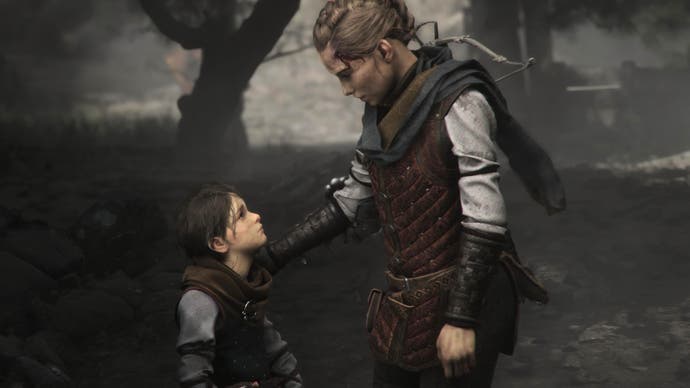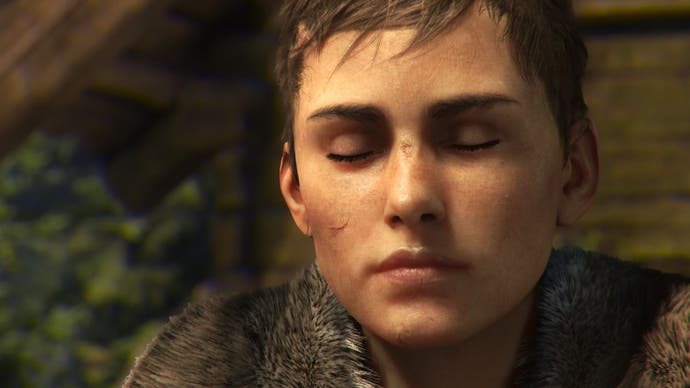Games of 2022: A Plague Tale: Requiem provided the best big sister
Amicia already.
I think fiction sometimes forgets about the bonds between brothers and sisters and how powerful they can be. I guess we usually see siblings as a way of showing two sides of the same coin - one who turned out evil while the other turned out good, like me and my brother. But if a story wants us to feel that harrowing sense of fear or loss, and desperation, it's usually a parent-child set-up they go for.
But A Plague Tale doesn't - A Plague Tale goes for the sister-brother bond. It's the whole central concept to the series: experiencing the brutality of 14th century France through the vulnerability of two children. Well, 'children' - one is a teenager, 15-year-old Amicia, and the other is a five-year-old boy, Hugo. The series begins with them on the run after their family is attacked, and they never really stop running until the end of A Plague Tale: Requiem.
In all this time - about a year's worth, I think - Amicia is Hugo's everything. She keeps him alive day to day, and alive in the face of murderous soldiers and murderous rats, and there are hordes of both. And through it all, and perhaps because of it all, a profound bond forms between them.
Maybe this bond was there all along. Maybe it's there between all siblings. Maybe what gets in the way is all the trifling day to day stuff, like, "Daaaad, John stole my Panthro!" (I was really into Thundercats), and, "Daaaad, Rob's being annoying!" (I usually was.) Maybe it's bigger problems that blow the bickering away.
I've seen something like this in my life. I've seen a brother and sister, also with a significant age gap like Hugo and Amicia, go through a profound change in their lives and cling to each other through it like swimmers to a buoy, as if to keep themselves afloat.
The stakes are much higher in A Plague Tale, of course - there are no soldiers or plagues in the example I'm thinking of, but underneath, that fear of separation was fundamentally the same. It's an atomic kind of power to try and split.

That's why the brother-sister relationship in the game really stays with me, because I believe in the power of it. I've seen it. So I see the desperation in Amicia and I believe she will do anything because of it.
Actually, there's a moment deep in the game, figuratively and literally, where you can see Amicia's desperation to protect Hugo - or someone very like Amicia - almost manifest, in a tableau of skeletal remains. And I remember it choking me up; it was heartbreaking.
It's this that I'll remember when time has passed and the memory of the game's mechanics and discrete details fade. It's Amicia and Hugo, one clinging to the other, that I'll think of, and of their brotherly and sisterly love.


